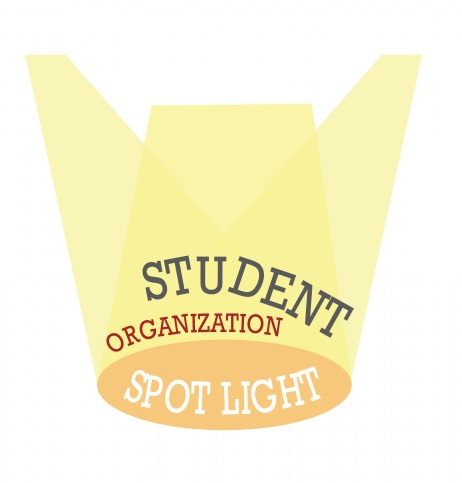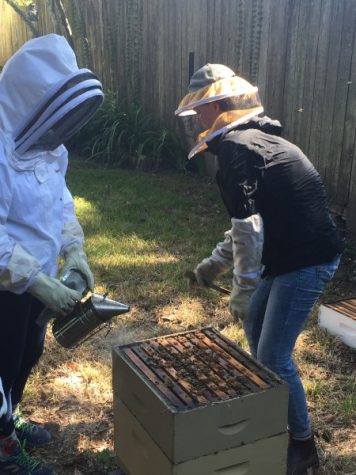Student Org Spotlight: Beekeeping Club

Anh Nguyen | Associate Artist
The Tulane Apiculture Society, more commonly known as the Beekeeping Club, is a student-run organization devoted to preserving bee colonies and spreading awareness about issues threatening bee populations.
Senior Darcy Gray, Tulane Apiculture Society president, has been involved with the club since she helped establish it her freshman year. Gray said she thinks it is important for people to become “backyard beekeepers” and learn how to care for hives of their own.
“By having a club here on campus, we hope to foster people’s interest in becoming beekeepers but also, in a larger sense, just spreading awareness about the plight of the honey bee,” Gray said.
With a declining bee population around the world, some say it is becoming increasingly important for people to understand the role bees play in our society. A third of all the food people consume is dependent on the pollination of bees, and without bees to pollinate crops, food production worldwide is at risk of drastically declining.
Through a series of annual events and workshops, students can engage with local and professional beekeepers. Informational sessions are also available in which students can tour a beehive to see how it is constructed and what the bees do inside their hives.
“We’re trying to engage with local beekeepers more,” Gray said. “This weekend we did a visit to capstone farms in the Lower Ninth Ward, and we talked to a beekeeper there, and he showed us around and talked about how beekeeping plays a role in his nonprofit, which is a social justice and food justice organization.”
Senior Danny Fitzpatrick became a beekeeper after attending some events held by the club. This year he is a member of the club’s executive board, also known as the Bee Board.
“I think it’s really interesting seeing people’s reactions to learning more about the bees and learning how integral of a role bees play in a lot of different food we eat or products we interact with,” Fitzpatrick said.
Gray said she has gained the satisfaction of meeting people who have similar interests through her experiences in the beekeeping club. She said she also hopes to gain the ability to communicate with people about the role of bees in our society and explain to them how important this species is to our environment and our lives.
“I think people are excited when they hear about it,” Gray said. “I think it’s a cool thing to be a part of because … especially with a growing beekeeping community in New Orleans right now, it plays into this idea of urban sustainability and urban farming and just a general ‘Green’ movement. So, it’s an exciting thing that new students can engage with.”

Members of Tulane’s Beekeeping Club attend events where they learn how to safely handle and care for this species on decline.
Freshman Robert Law recently became a member of the Beekeeping Club after signing up at the Fall Activities Expo. Though he initially signed up for the club mainly because he thought it would be fun, he has since become invested in the club and plans to continue his club membership throughout his years at Tulane.
“I’m kind of interested, especially after joining, in having a hive of my own when I’m an adult and just harvesting honey,” Law said. “And it’s really cool just having a way to learn about that.”
By spreading awareness of issues such as colony collapse disorder and pesticides that can have harmful effects on bees, Gray said she hopes the Beekeeping Club will inform students of what they can do to help protect bees in their local communities. Students interested in beekeeping or learning what role bees play in the food system are encouraged to reach out to the Beekeeping Club through the club’s OrgSync page.
Leave a Comment
Your donation will support the student journalists of Tulane University. Your contribution will allow us to purchase equipment and cover our annual website hosting costs.
















Ronnie bonnette • May 5, 2018 at 2:52 am
Doing some research I stumbled on this I used to live uptown years ago and loved it. We live on the north shore and am eagerly awaiting of two nucleus hives on Sunday. I am a relatively new beekeeper as I have had a couple hives but lost them, apparently to Colony collapse. Out of frustration I did not replace my bees last year but missed them dearly. I have been reading as much as I can about beekeeping, and am employing a more natural approach using foundation less frames so that the bees can make the cells to their own liking. I plan on letting them bee, and to disrupt them as little as possible, really just adding extra boxes as the colonies grow. After overcoming my initial intimidation of a bunch of bees they have become truly fascinating